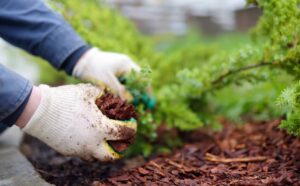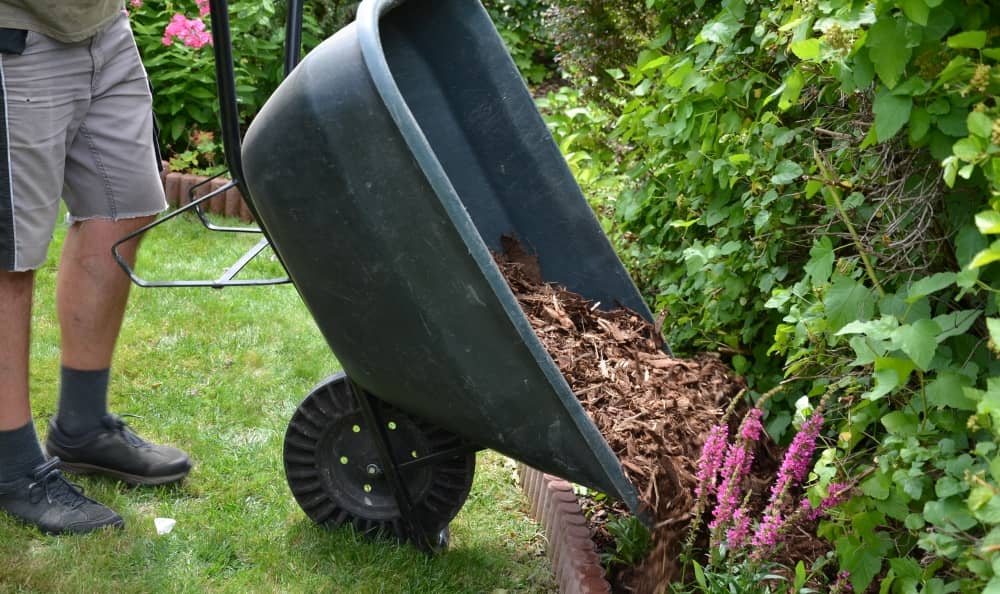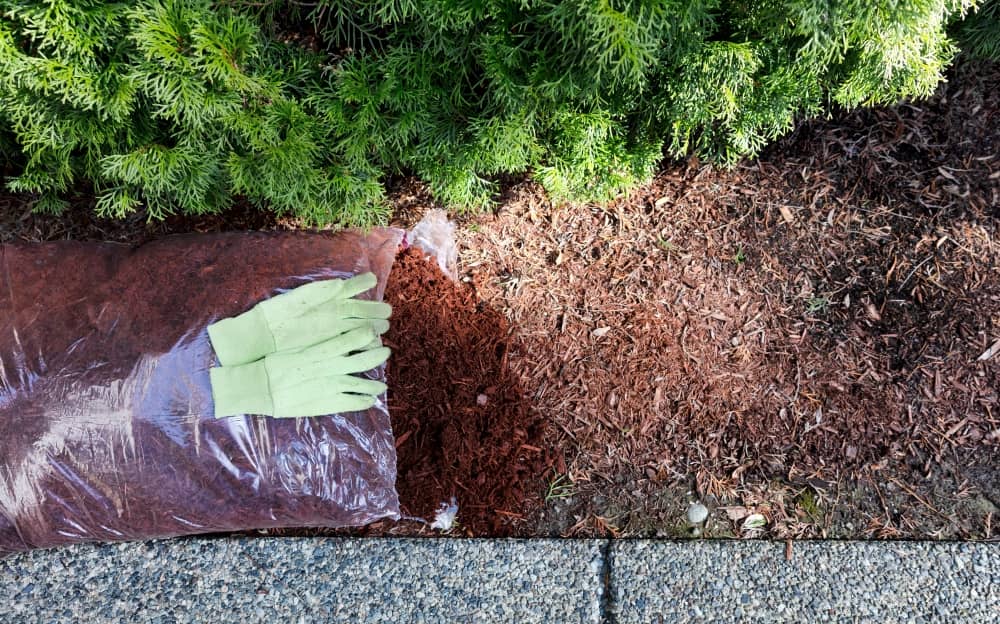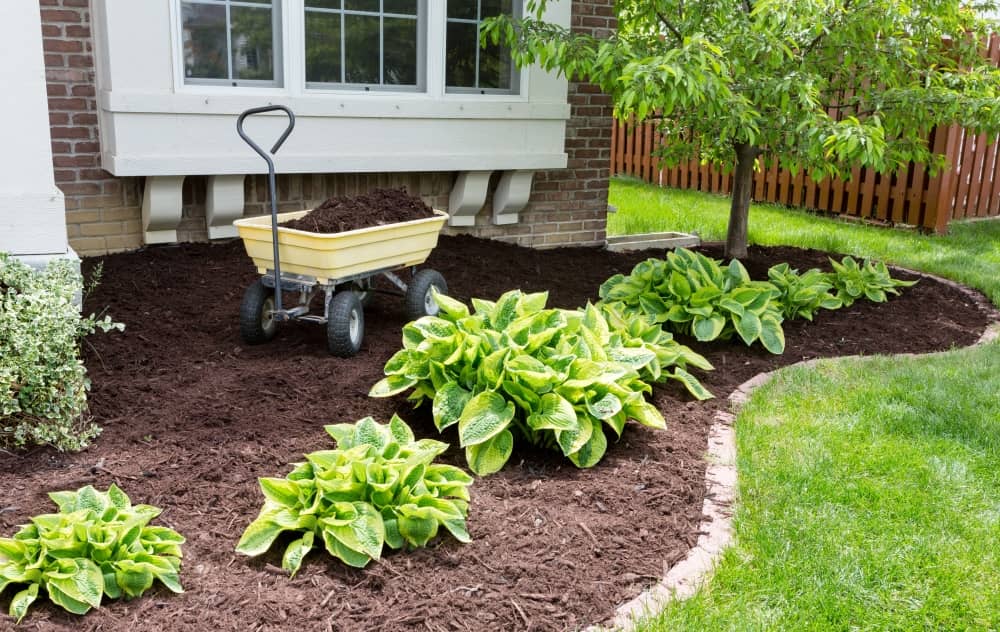The Basics of Garden Mulch
 Whether you are a new homeowner plotting out your first garden or someone looking to replenish your garden with new nutrients that were depleted during the hot growing season, adding a layer of organic mulch on top of the soil will maintain the content and structure of the soil. While inorganic mulch has an aesthetic appearance, it will not decompose nor prevent soil erosion. Because it is nearly impossible to capture all of the nuances related to the different types and uses of mulch, today we will concentrate on the basic benefits of organic garden mulch.
Whether you are a new homeowner plotting out your first garden or someone looking to replenish your garden with new nutrients that were depleted during the hot growing season, adding a layer of organic mulch on top of the soil will maintain the content and structure of the soil. While inorganic mulch has an aesthetic appearance, it will not decompose nor prevent soil erosion. Because it is nearly impossible to capture all of the nuances related to the different types and uses of mulch, today we will concentrate on the basic benefits of organic garden mulch.
WHAT IS MULCH?
Quite simply, mulch is either an organic or inorganic protective ground covering used for a variety of purposes aimed at enhancing the appearance of a landscape or for benefiting the fertility of the soil in a garden. Mulch functions like a silent sentry to help guard against soil erosion, it works as a shield against damage from harsh sunlight, extreme changes in temperatures, heavy rains, and windy conditions. Another major benefit of mulch is its ability to control or suppress weeds while encouraging the growth of healthy microorganisms.
WHAT MATERIALS ARE USED IN ORGANIC GARDEN MULCH?
As the name implies, organic mulch is composed of eco-friendly, natural-based materials. Typical materials include Pine bark, Red Gum wood chips, crushed Karri bark and Peat, recycled Marri branches and trunks, and recycled crushed forest leaves and bark mixed with weed-free sawdust and composted organics. At Bibra Lake Soils we carry a full line of loose mulches as well as, premium bagged mulches for smaller garden areas.
WHAT ARE THE BEST ORGANIC MULCHES FOR WESTERN AUSTRALIAN GARDENS?
All of our premium mulches available at Bibra Lake Soils possess a high UV resistance quality that is well suited for the sandy soil and harsh summer temperatures typically experienced in the Perth region. Coarse textured, irregular mulches have more spacing between their particles that allows water to filter between the materials to reach and nurture the plant roots.
HOW TO USE GARDEN MULCH?
While mulch can be applied to garden plots at any time, gardening professionals favour putting a protective layer of mulch down before the heat of summer arrives. The ideal time to mulch garden plots is during late winter or early spring while the soil is still moist and cool and the protective covering also helps to reduce the potential for evaporation of water as the weather warms up. Use the following information as a general guideline for applying mulch in the garden.
- Remove weeds before blanketing the garden area with organic mulch.
- Be sure to water the soil before applying organic mulch to the area. If your soil tends to repel water, you can improve water penetration with an application of our bagged Easy Wetta soil wetter granules.
- Unless you desire the appearance of a dark-coloured mulch, use one of our light-coloured mulches to deflect heat from bright sunlight.
- Inorganic mulch, such as our line of pebbles, crushed bricks, or stones, can be used to fill in spaces between garden plots for a clean, finished appearance.
- Apply a standard 100mm layer of mulch over the soil. If you need help determining how much mulch is needed for your garden area, call Bibra Lake Soils at (08) 9434 2290 to consult with one of our friendly, professional staff members.
- Depending on the climate in your area, the soil composition, and the type of mulch used, you will need to reapply the mulch covering once every one to four years.
- Keep the mulch a few centimetres away from the plant roots to avoid root rot and to minimise attracting plant pests.
WHAT ARE THE DO’s AND DON’Ts FOR GARDEN MULCH?
Selecting the most beneficial mulch for your garden will depend on the type of soil in your area, the weather conditions, what protective plant properties are to be gained, and even what appearance you want for your ground cover. Once you are ready to start mulching, keep in mind the following do’s and don’ts for a thriving garden.
The Do’s:
- Remove weeds before applying your mulch
- Water the ground well before covering the soil with mulch
- For the initial mulch application, apply a generous layer of approximately 100mm for normal or clay soil and a layer of 150mm for sandy soil
- Keep the mulch several centimetres away from the plants allowing for growth and the flow of air
- Rake through the mulch semi-annually to aerate plant roots
- Follow the recommended guidelines when adding new mulch which can be anywhere from one to four years depending on the type of mulch used and how quickly it decomposes
- Before putting down new mulch, dig through the old mulch and mix it into the soil to allow for continued decomposition
- Use organic mulch that feeds the plants while suppressing weeds
- Add some Premium Lupin Mulch as a nitrogen-rich boost for new plants
- Use only mulch products that meet the quality standards for organic and composted materials
The Don’ts:
- Avoid packing the mulch tightly as the dense blanket attracts garden pests
- Avoid piling the mulch flush against plant stems as this may cause the plants to rot, potentially cause plant diseases, and become a breeding ground for pests
- Avoid adding new mulch during the heat of the summer as this allows the soil to remain too warm
WHAT ARE THE PROs AND CONs OF ORGANIC GARDEN MULCH?
While the positive effects of garden mulch far outweigh any negative effects, you want to be aware of how the mulch material you are considering can potentially impact the covered soil.
The Pro’s:
- Mulch can be added throughout the year
- Reduces damage due to harsh sunlight
- Prevents the formation of crust over the soil
- Shields plants from extreme heat and cold temperatures
- Provides beneficial soil nutrients and microorganisms
- Encourages healthy worm activity
- Slows the evaporation of water that lets the roots of plants remain cooler during the hot summer months
- Controls the growth of weeds
- Presents a neat, organised appearance
The Con’s:
- Keep mulch a few centimetres away from plant bases to discourage plant-threatening insects that like cool, dark spaces
- Remove the mulch and allow the ground to dry if it becomes muddy during the rainy season
- Because organic mulch decomposes, it needs to be re-applied every one to four years depending on the climate in the area and the type of mulch used
BOTTOM LINE
Planning and working in the garden is a labour of love. Besides the desire to enjoy the fruits of your labour, you want to give your plants every advantage possible to thrive. Mulch is that added layer of protection for enriching the soil, deterring weeds and pests, and creating the perfect surroundings for growth. In addition to being plant-friendly, mulch also adds a neat, well-kept appearance to your garden.
Our goal is to help you achieve your lawn and garden goals, and Bibra Lake Soils has a full selection of organic mulches to match your gardening needs and accommodate the various soil conditions in the greater Perth area.
If you have any questions or concerns, please reach out to us by phone at (08) 9434 2290 to speak with one of our friendly, knowledgeable staff members. We are open seven days a week for your shopping convenience at Bibra Lake Soils, 222 Barrington Street, Bibra Lake WA, 6163. You can email us with inquiries or requests for other general information at info@bibralakesoils.com.au. Happy gardening.





